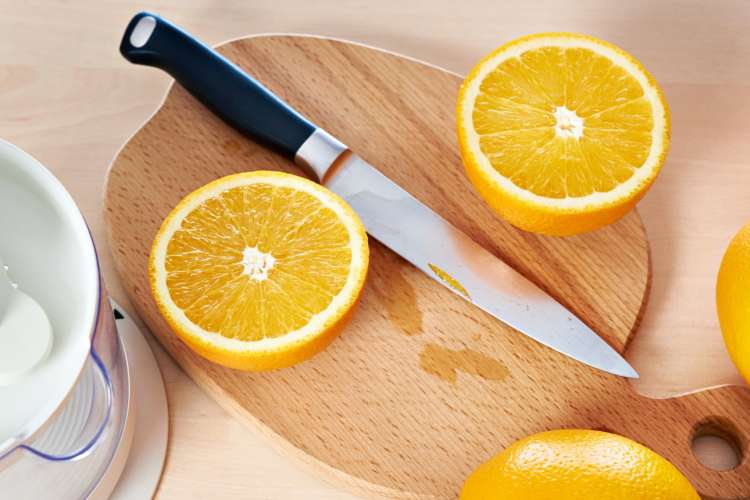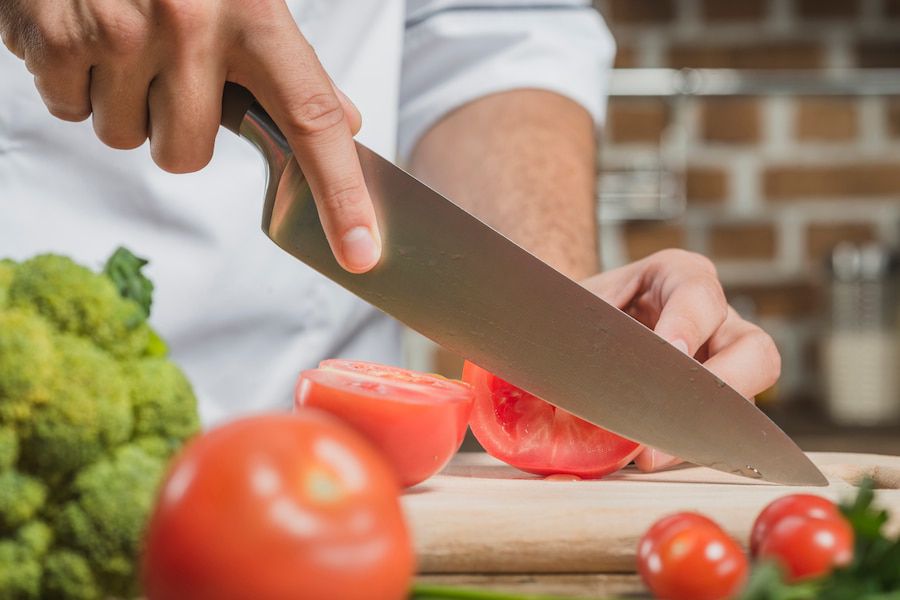For kitchen professionals who understand the importance of having reliable tools in the kitchen, the choice of knives can significantly impact efficiency and quality of work. With numerous brands available, one constant query arises - is Santoku a good knife brand? This question leads us into an exploration of what makes a knife brand exceptional and how Santoku measures up.

Understanding Santoku Knives
While not a brand per se, the Santoku knife is a style originating from Japan, celebrated for its versatility. The word Santoku translates to three virtues or three uses, referring to its adeptness at chopping, dicing, and mincing. This multi-purpose knife has gained popularity in professional kitchens worldwide. But how does this style translate when considering specific brands that manufacture Santoku knives?
Key Features of Santoku Knives
To assess whether a brand is commendable, we first need to understand the essential features of a Santoku knife. These typically include a straight blade with a flat edge, a sheepsfoot blade point, and a lack of bolster, which allows for more of the blade to be used for cutting. Brands like Viking and Boker offer their takes on the Santoku design, each adding unique elements that set them apart.
Evaluating Santoku Brands
The market is replete with brands that specialize in crafting Santoku knives, each bringing their interpretation to the table. When evaluating whether these brands are good, we should consider factors such as blade material, handle comfort, weight distribution, and durability. Brands like Mercer offer high-quality steel options that ensure the knife maintains its edge over time, while other brands might focus on ergonomic handle design for better grip during extended use.
Blade Material
The type of steel used can greatly influence performance. Many top-rated Santoku knives are crafted from high-carbon stainless steel, known for its exceptional sharpness and resistance to rust. This is a key aspect to consider when determining the brand's quality, and one where brands such as Skandia excel.
Handle Comfort and Design
Comfort is crucial for kitchen professionals who use knives extensively throughout the day. Santoku knives are designed with ergonomics in mind, and brands often innovate in handle materials and design to enhance user grip and reduce fatigue.
Weight and Balance
A crucial aspect of a good knife is its balance. A well-balanced Santoku knife, regardless of brand, should feel natural in hand, allowing for precise cutting techniques without exerting too much pressure on the chefs wrist.
Comparing Santoku with Other Knife Styles
In comparison to other knife styles, such as the Western chefs knife, Santoku knives are often preferred for their lightweight and versatile nature. According to a detailed guide on the Chefs Knife, some chefs find them more accessible and easier to control, especially in high-speed kitchen environments.
Is Santoku Worth it for Kitchen Professionals?
Ultimately, the answer to whether a Santoku knife brand is 'good' depends heavily on personal preference and specific work requirements. For a kitchen professional, investing in a high-quality Santoku knife can add precision and efficiency to daily tasks. However, its advised to try various brands and see which one fits best with individual cutting styles and hand ergonomics.
Conclusion
Is Santoku a good knife brand? While not a brand itself but a style, numerous brands do manufacture Santoku knives of varying qualities. The key is in discerning which brand aligns with your specific needs and comforts. Professionals might do well to explore brands like Mercer, Viking, or Skandia among others, to find their ideal Santoku. For more insights into different knife brands, check out our discussion on Calphalon knives.

FAQs
What makes a Santoku knife different from a chef's knife?
A Santoku knife typically has a shorter, wider blade compared to a traditional chef's knife, making it ideal for chopping and dicing.
How can I determine the quality of a Santoku knife?
Assess the blade material, handle design, and balance. High-carbon stainless steel and ergonomically designed handles are key indicators of quality.
Are Santoku knives suitable for all kitchen tasks?
Yes, Santoku knives are versatile and can handle most tasks like slicing, dicing, and chopping, but they might not be suited for heavy-duty tasks like bone-cutting.
This article contains affiliate links. We may earn a commission at no extra cost to you.


























